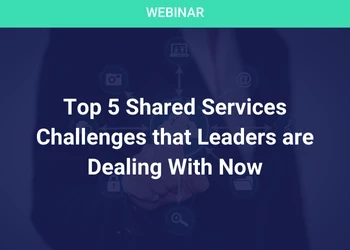Q&A: Bryan Bergeron, Archetype Technologies
Add bookmarkBryan Bergeron, MD, is - among many other things - a renowned consultant, systems designer, academic, innovator and author of numerous influential works including Essentials of Shared Services (2002). Bryan holds a teaching position at Harvard Medical School, while his consultancy's clients include the US military and numerous high-end tech companies. We caught up with Bryan to get his take on the shared services model today and tomorrow - and to find out a little more about this modern-day polymath.
SSON: You wrote Essentials of Shared Services over six years ago. How far do you think the shared services space has changed since then, and what have been the drivers of that change?
Bryan Bergeron: Shared services has gone through the hype curve and survived – largely intact. The driver has of course been economics – the same driver for outright outsourcing. Shared services has taken off in medicine, where cost savings and tight control are both required. In other industries, where control isn’t as necessary or desired, traditional outsourcing is more popular.
SSON: What do you see as being the biggest advantages of the shared services model?
BB: The biggest advantage of the model is control and retention of knowledge in the enterprise. If you outsource, you may realize short-term profits, but you lose intellectual capital in the long term.
SSON: Much of your work – unsurprisingly, considering your background - has been on technology in the healthcare industry. Shared services is an increasingly popular strategy among healthcare providers: what do you think has been the influence of the healthcare industry on the development of shared services (and vice versa)?
BB: As above, the issue is control. Healthcare services are tightly controlled, in part because of regulations and in part because of tradition. I’ve worked with several hospitals over the past year that have moved to a shared services model for a significant percentage of their business operations – especially pharmacy and laboratory services.
SSON: How do you see shared services evolving in the next, say, five years?
BB: Good question. I think the governance model will continue to evolve to provide a ‘customized’ fit for each industry, based on tradition and standards.
SSON: What’s your opinion of outsourcing as a business strategy?
BB: It’s critical to the survival of many industries. I don’t know of many companies/industries that don’t outsource. The only exception that comes to mind is shoe manufacturers in Korea. They tend to build everything in house, instead of purchasing best of breed components from suppliers.
SSON: What’s the secret to a successful tech implementation?
BB: People. Technology is just a tool. You have to have buy-in and a workable plan that accommodates users and that respects their need for time to change.
SSON: In a nutshell, what are the "Essentials of Knowledge Management"?
BB: Document what you couldn’t do without. If someone or some team in your business improves upon a process, then document it. Otherwise, the process leaves with the person.
SSON: We mentioned your background a minute ago, so let’s look at that and get an impression of you personally: can you tell us a little about your career up to now? How’ve you got to where you are today?
BB: Up to now my career (whatever that is) includes a mix of consulting (80 – 90%%) and traditional academia. Most of my time is spent on long-term projects, such as ‘chief scientist’ for hire at start-ups. I’ve also been involved in a large number of business development projects for start-ups. For the past several years, my major client has been the US military, which has very deep pockets for key projects surrounding homeland security, bioterrorism, nuclear events, and the like.
I’ve kept a formal tie to academia since I finished a post-doctoral fellowship in Medical Informatics at Harvard to keep touch with the theoretical (and often impractical, but occasionally very profitable) side of things. In my consulting, it also helps to have an academic tie, as a seal of approval. My positions at MIT/Harvard have facilitated, for example, obtaining grants from the US Army and others.
Writing continues to be a part of my everyday life. I edit two magazines (one in robotics, and the other in electronics) and that means a couple editorials every month, at a minimum. I think that writing is a key skill every consultant should develop – it helps to get your name out there.
In terms of business training, I owe my perspectives to my maternal grandparents. Both were second-generation Americans with relatively little education who nonetheless each developed and ran very successful business in the transportation and food industries.
SSON: How do you perceive yourself in terms of your role: do you self-describe (if at all) as a consultant, a doctor, a businessman…?
BB: My self-definition changes with my current activities. Today, I consider myself a consultant, which is to say an intellectual mercenary of sorts. It’s a freeing definition, in that it doesn’t lock me down into a given tract or field.
SSON: Tell us a bit about your consultancy Archetype Technologies. What kind of work do you carry out and who are your clients?
BB: At present, my major clients include the US military, Massachusetts General Hospital IHP, and a handful of top-tier technology companies. For the past several years, I’ve been developing intelligent training systems, serious games, and related technologies for the military. My role has been ‘Principal Investigator’ on a number of Congressional Grants related to training/evaluating medical first responders to manmade disasters related to warfare. In these roles, I design systems and hand the designs over to programmers and trainers for the implementation.
Sometimes I intentionally get involved at the hands-on level. For example, in designing surgical instrument interfaces for surgical trainers, I like to work with the hardware and microcontrollers directly.
I’ve done quite a bit of work on data warehouse implementation over the past few years as well, primarily in the Middle East. I enjoy the travel, and it’s great working with people (many now friends) who appreciate your time.
The top-tier technology companies I mentioned are Fortune 500 companies involved in medical device intellectual property. That is to say, they’re involved in exerting their patent rights in a given market. I assist in evaluating their IP holdings for patent litigation cases and to identify potential infringers. As everyone knows, there’s money in war, and there’s a constant battle in the corporate world over securing and defending intellectual property rights. I really enjoy this work because it demands knowledge of both the underlying technology and patent law, and because the people I work with are highly trained professionals.
SSON: You’ve got a hugely impressive portfolio of published works. How do you find the time?
BB: I make the time, but it’s not a conscious effort. I enjoy writing – I look forward to writing something every day.
Time management is important, as is the "luck" of genetics. From a behaviour perspective, I don’t watch TV. I work out every day, write something every day, and make a point of learning something every day. I also hang out with like-minded people.
Genetically, I’m an early riser and never have required much sleep. I’m up at 2am, 7 days a week, travel or not. I get my writing done, work on my top-level projects, and get to the gym or run, before 8am. The rest of the day is open for meetings, etc.
SSON: And, if anything, what are you working on at the moment?
BB: At this moment (this week), I’m:
- writing an editorial for one of my magazines;
- finishing up two SBIR proposals I helped write for a client;
- evaluating two patents owned by an international communications company for possible infringement by a medical device manufacturer;
- evaluating learning management systems for training at a local medical college;
- working on a patent application (for my company).
SSON: What’s the worst business mistake you’ve ever seen anyone make?
BB: Refusing to see "reality". A lot of people in business start believing their own marketing materials. I once helped a company develop a market for a device that was never built, and never could be built. In the end, the company folded.
SSON: What’s the most common mistake or bad practice you encounter during your consultancy work?
BB: Failure to change, even when it’s obviously for the better. Most of us are creatures of habit, and it’s easy to stick with the old ways of doing things.
SSON: Of what, in your professional career, are you most proud?
BB: I suppose it’s some of my early software. Many of the titles were the first in their domains – computer based diet and exercise for consumers and patient simulation for physicians, for example.
SSON: What’s the best advice you’ve ever been given? And did you listen to it?
BB: A marketing consultant once told me never to charge for my time, but for my output – that is the deliverable. Otherwise, there’s no internal incentive to increase efficiency and get more done. I’ve taken that to heart, and avoid charging "by the hour" unless the client insists. I get the work done as efficiently as I can and then go for run, play my guitar, or spend time with my significant other.
In the cases where the client wants an hourly report, I often find myself torn between simply getting it done ASAP and charging a reasonable time estimate and actually spending the allotted time on the project. It’s a mindset issue.
SSON: Finally, what’s next for you professionally over the next few years?
BB: I’m going to continue the intellectual property work, in part because it’s innately interesting, and in part because it helps me with my own patent designs. There’s probably a book or two in there somewhere as well.
(For more information on Bryan Bergeron, see the Archetype Technologies homepage at www.archetypetech.com)





















